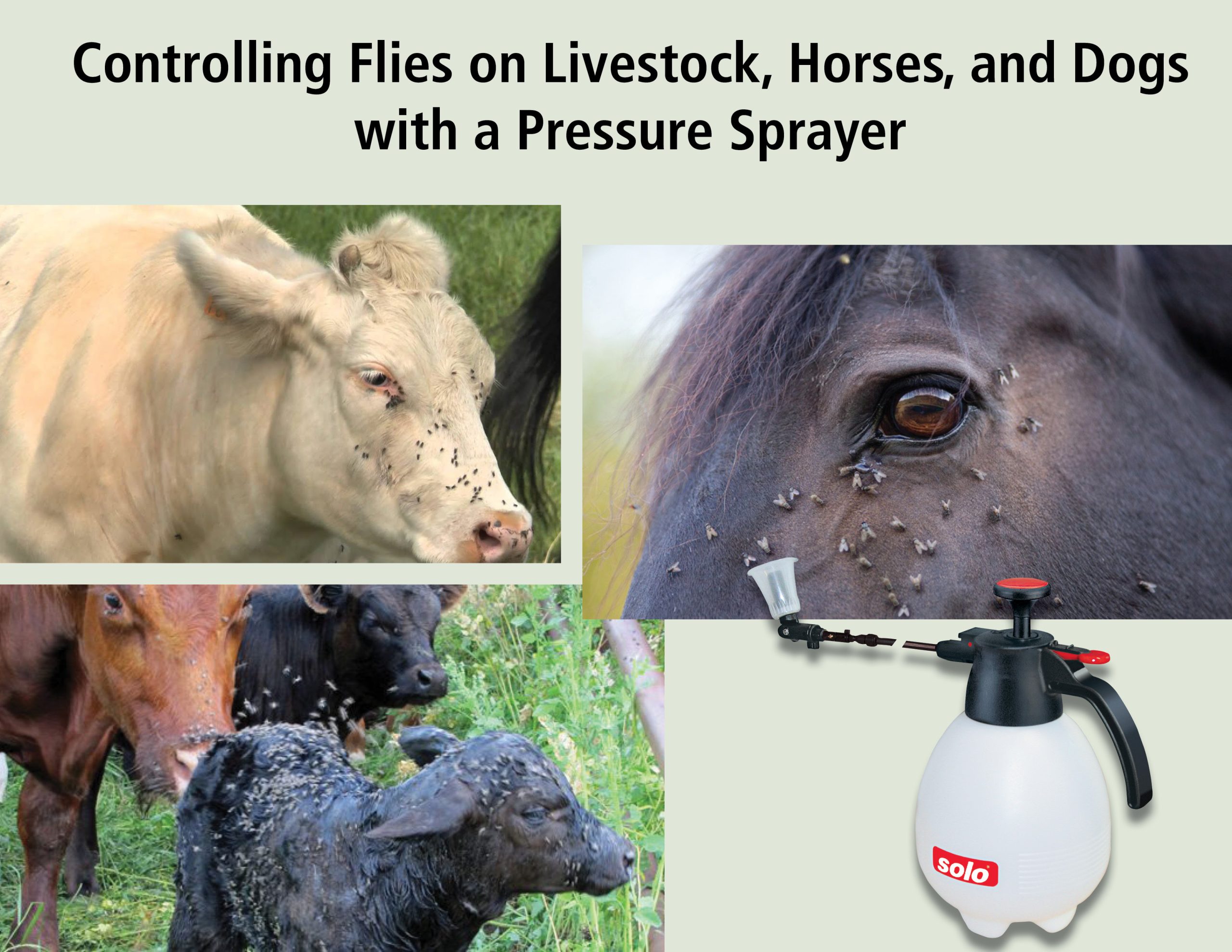
It is essential to control flies when you live or work with animals. Flies, especially biting flies, are unhealthy for horses, livestock, and dogs because they suck the blood of animals, and leave open wounds. Bite wounds can lead to infections or weight loss.
Flies are hard to control because of their ability to breed quickly, especially in warm weather. Uncontrolled flies can lead to economic losses for those in the cattle industry. For example, horn flies account for $1 billion in losses for the United States, according to the Institute of Agriculture and Research at the University of Nebraska.
Flies also bother horses who may develop health issues as a result of stress from irritating flies, or horses might develop infections from bites. Horse owners might have to foot expensive veterinarian bills if flies are out of control. Dog owners face a similar issue. Flies buzz around in the face and ears of dogs, or they bite dogs and leave them with open wounds. So, what can you do to protect animals from flies?
Livestock
Livestock deal with face flies, horn flies, and a variety of other flies that irritate and bite them. Controlling flies in barns and the areas where livestock live is an effective way to deal with flies. Farmers remove waste and manure that attract flies. Another way that farmers control flies is by using ear tags. Finally, farmers also spray cattle with insecticide to deter flies.
Flies also land on a horse’s face and body. Removing manure, old food, and other things that attract flies helps control fly populations. Physical barriers, such as fly masks, are conventional methods to protect horses from flies. Horse-owners will also use fly sprays to deter and kill adult flies.
Dogs
Dog owners are spending more time outside because of the warm weather, making dogs vulnerable to flies. Frequent grooming helps keep flies away from dogs because matted and ungroomed fur attracts flies. Like with livestock and cows maintenance, remove feces and garbage in your yard and home that attract flies. Fly spray is another option, as there are fly sprays that are designed for dogs.
Pressure Sprayer for Fly Control
Fly spray is a solution for many different animals, but what is the best way to apply fly spray? Flies attack different parts of an animal’s body. Some parts of an animal may be difficult to cover with fly spray, leaving certain areas of an animal vulnerable.
A one-hand pressure sprayer is ideal for applying fly spray to animals because of its ability to spray hard-to-reach areas on an animal. When the sprayer is pressurized, you can use one hand to hold an animal still while you apply an even coat of fly spray across an animal’s body.
One-hand pressure sprayers are especially useful for applying fly spray to untrained horses. Horses do not like being sprayed with fly spray, or they dislike the sound of the spray bottle. A one-hand pressure sprayer is quiet, and it takes less time for a pressure sprayer to apply a fly spray. Overall, one-hand pressure sprayers are effective when using fly spray on livestock or dogs because they are quiet and allow the user greater mobility.
